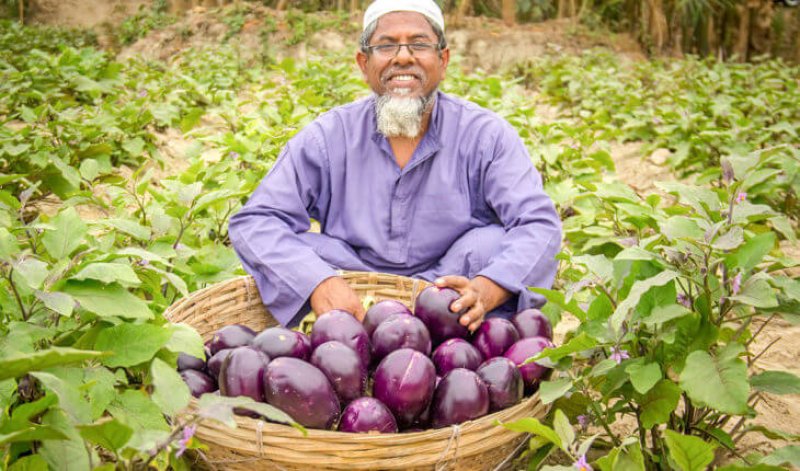With reduced costs of pesticides and increased yield, BT brinjal farmers say their profits have increased manifold.
“After preparing a portion of my field in August, I planted the BT Brinjal seeds in September. I started harvesting the eggplant in the first week of November. I did manage to harvest the eggplant twice in a week and each time I got some 150-180 kg of BT brinjal from my land,” says Gopal Sardar, a local farmer.
“Spending barely Tk4,000-5,000, I raked in huge profits,” says Gopal, who intends to bring his entire farm land under BT brinjal cultivation next year.
“Encouraged by my efforts, many farmers in my locality have shown interest in cultivating the fruit and some even took seeds from me. I got the seeds from the local agriculture office,” he adds.
According to the Department of Agriculture Extension, farmers who cultivate the general varieties of brinjal are forced to use 17-20 metric tons of pesticides every year to save the crops from pest attacks, which is the main reason behind the rising cost of production.































